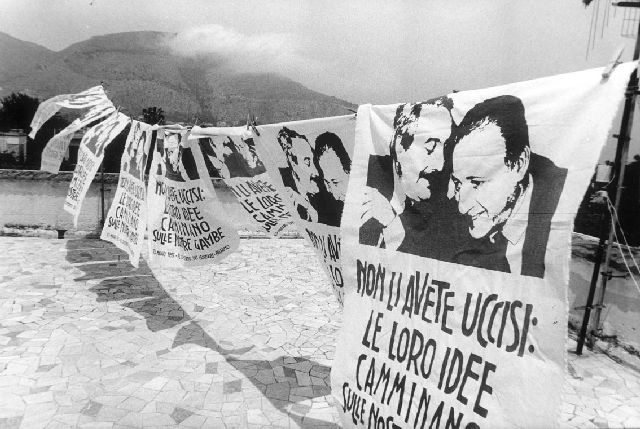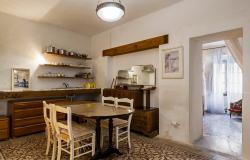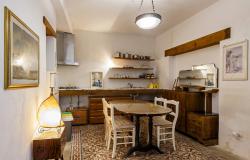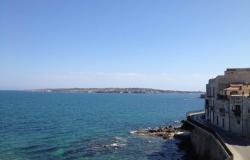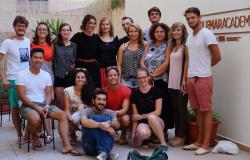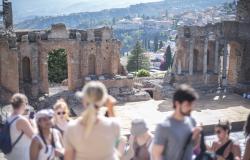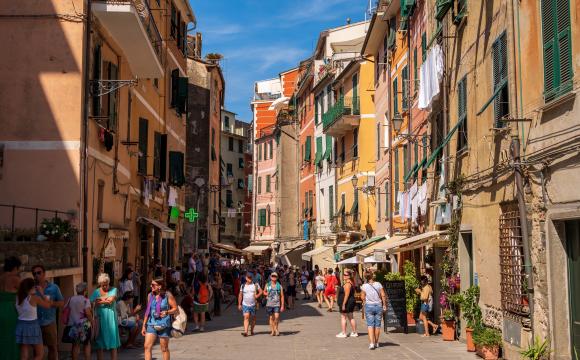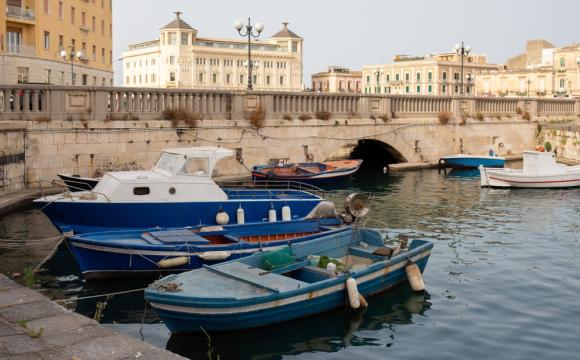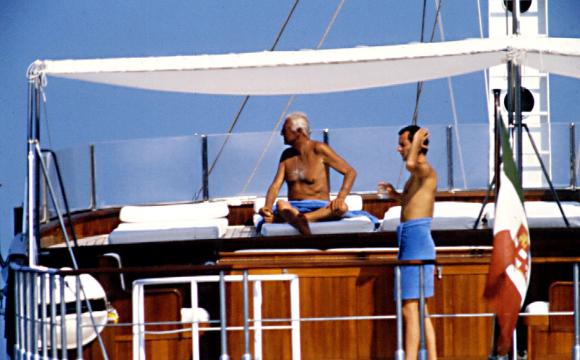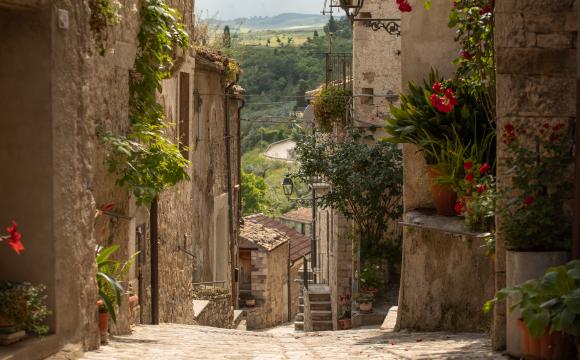 At the time, the Italian government launched Operazione Vespri Siciliani (Operation Sicilian Vespers) and sent troops to the Sicily. The operation gained its name after the Sicilian Vespers that refers to the islanders’ rebellion against the ruling Angevins in the 13th century.
Operation Sicilian Vespers took place between 25 January 1992 and 8 July 1998. It was launched to support regular police forces in their fight against organised crime in Sicily and was the largest Italian Army homeland security operation since the end of World War II. Initially, 9,000 soldiers were deployed, and more than 150,000 officers and soldiers were involved during the six-year long campaign.
At the time, the Italian government launched Operazione Vespri Siciliani (Operation Sicilian Vespers) and sent troops to the Sicily. The operation gained its name after the Sicilian Vespers that refers to the islanders’ rebellion against the ruling Angevins in the 13th century.
Operation Sicilian Vespers took place between 25 January 1992 and 8 July 1998. It was launched to support regular police forces in their fight against organised crime in Sicily and was the largest Italian Army homeland security operation since the end of World War II. Initially, 9,000 soldiers were deployed, and more than 150,000 officers and soldiers were involved during the six-year long campaign.
 Commentators, journalists and historians have described the assassinations, the complexities of Operation Sicilian Vespers, accompanying investigations and arrests. But what was life like for ordinary Sicilians on the island? Carol King spoke to Katia Amore to find out what is was like being a teenager in Sicily during the bloodiest period of its recent history.
Were you aware of Falcone and Borsellino when you were growing up?
At that time, I was just tuning into the world from an adult perspective. I was allowed to stay up late and watch TV talk shows. I knew who Falcone was and after his death, Borsellino was in the media spotlight. I remember an Italian talk show I watched with my parents hosted by journalist Maurizio Costanzo and how he often invited Falcone on to speak about the dangers the Procura (Public Prosecutor’s Office) faced. I knew Falcone was someone who was right and pressing [people’s] buttons.
I remember there was a lot of polemic and the mafia tried to attack the media. Costanzo and fellow TV presenter Michele Santoro did some TV specials talking about the mafia and Falcone. Then [on 14 May 1993], there was the Attentato di Via Fauro (Via Fauro Attack) when a bomb went off in Rome as Costanzo’s car was approaching. It nearly killed him. I understood how serious the situation was when I realised that people wanted to bomb a TV journalist for hosting Falcone.
Commentators, journalists and historians have described the assassinations, the complexities of Operation Sicilian Vespers, accompanying investigations and arrests. But what was life like for ordinary Sicilians on the island? Carol King spoke to Katia Amore to find out what is was like being a teenager in Sicily during the bloodiest period of its recent history.
Were you aware of Falcone and Borsellino when you were growing up?
At that time, I was just tuning into the world from an adult perspective. I was allowed to stay up late and watch TV talk shows. I knew who Falcone was and after his death, Borsellino was in the media spotlight. I remember an Italian talk show I watched with my parents hosted by journalist Maurizio Costanzo and how he often invited Falcone on to speak about the dangers the Procura (Public Prosecutor’s Office) faced. I knew Falcone was someone who was right and pressing [people’s] buttons.
I remember there was a lot of polemic and the mafia tried to attack the media. Costanzo and fellow TV presenter Michele Santoro did some TV specials talking about the mafia and Falcone. Then [on 14 May 1993], there was the Attentato di Via Fauro (Via Fauro Attack) when a bomb went off in Rome as Costanzo’s car was approaching. It nearly killed him. I understood how serious the situation was when I realised that people wanted to bomb a TV journalist for hosting Falcone.
 Were you aware of any mafia activity where you lived?
Although I grew up in a quiet, calm corner of Sicily where there was no obvious mafia activity, because of the local RAI TG3 [regional TV news] I was aware of the assassinations, gang wars and so on. Also, a relative lived above a shop where a bomb was planted: no one was hurt but the front door was blown off. It was a time when the mafia was testing to see if they could expand their activities to Ragusa, Rosolini and Ispica, even if they had not yet called to demand pizzo (protection money).
Were you aware of any mafia activity where you lived?
Although I grew up in a quiet, calm corner of Sicily where there was no obvious mafia activity, because of the local RAI TG3 [regional TV news] I was aware of the assassinations, gang wars and so on. Also, a relative lived above a shop where a bomb was planted: no one was hurt but the front door was blown off. It was a time when the mafia was testing to see if they could expand their activities to Ragusa, Rosolini and Ispica, even if they had not yet called to demand pizzo (protection money).
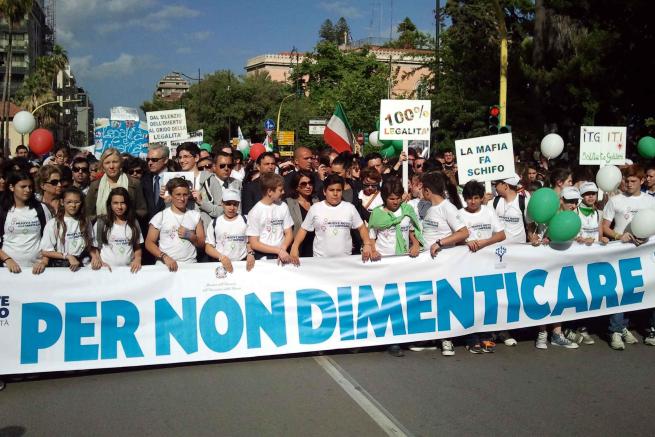 What was it like living in Sicily in the early 1990s?
I was a teenager full of hope. I saw Falcone on TV and started to look up to him. So, when he was murdered it was a big blow. He wasn’t someone I knew but it was as if he was a close relative: someone who showed a way to hope that then collapsed. The continuation of that hope was Borsellino. After he was killed, it was just too much.
I followed the funerals on TV. I cannot forget – and nor can any Sicilian with a political conscience and sense of community – when the wife of Vito Schifani [one of the police officers who died escorting Falcone] spoke at the state funeral of the victims of the Capaci bombing. I was in tears. The way she spoke [asking the men of the mafia to become Christians again] gave me goosebumps. It was like 9/11 [in that I remember it so well], I was sitting in my parents’ living room watching the news all day.
What was it like living in Sicily in the early 1990s?
I was a teenager full of hope. I saw Falcone on TV and started to look up to him. So, when he was murdered it was a big blow. He wasn’t someone I knew but it was as if he was a close relative: someone who showed a way to hope that then collapsed. The continuation of that hope was Borsellino. After he was killed, it was just too much.
I followed the funerals on TV. I cannot forget – and nor can any Sicilian with a political conscience and sense of community – when the wife of Vito Schifani [one of the police officers who died escorting Falcone] spoke at the state funeral of the victims of the Capaci bombing. I was in tears. The way she spoke [asking the men of the mafia to become Christians again] gave me goosebumps. It was like 9/11 [in that I remember it so well], I was sitting in my parents’ living room watching the news all day.
 What happened when troops arrived in Sicily after the bombings?
Town halls and other state offices were watched. It felt militarised. On the one hand, it felt ridiculous: to get in and out of small towns where everyone knew each other you had to go through roadblocks manned by soldiers with guns. You had to pass through checkpoints to come and go. I had never seen a gun in my life and suddenly there were kids four or five years older than me armed with guns as I entered my hometown. I had read they had mounted a major operation and it was obvious in the streets. At that time, military service was compulsory and later, when I then went to Veneto to study, I met some of the guys who had been soldiers involved in the operation.
Although now the scandals are coming out about possible agreements between the state and the mafia, although we still do not know the truth about those terrible days, although it was really weird to be surrounded by soldiers in tanks for six years like in a war zone, at that time Operazione Vespri Siciliani was a sigh of relief. I felt as if finally the State was paying attention and I realised that we [common people] could certainly continue Giovanni and Paolo's work. We will never forget!
What happened when troops arrived in Sicily after the bombings?
Town halls and other state offices were watched. It felt militarised. On the one hand, it felt ridiculous: to get in and out of small towns where everyone knew each other you had to go through roadblocks manned by soldiers with guns. You had to pass through checkpoints to come and go. I had never seen a gun in my life and suddenly there were kids four or five years older than me armed with guns as I entered my hometown. I had read they had mounted a major operation and it was obvious in the streets. At that time, military service was compulsory and later, when I then went to Veneto to study, I met some of the guys who had been soldiers involved in the operation.
Although now the scandals are coming out about possible agreements between the state and the mafia, although we still do not know the truth about those terrible days, although it was really weird to be surrounded by soldiers in tanks for six years like in a war zone, at that time Operazione Vespri Siciliani was a sigh of relief. I felt as if finally the State was paying attention and I realised that we [common people] could certainly continue Giovanni and Paolo's work. We will never forget!

